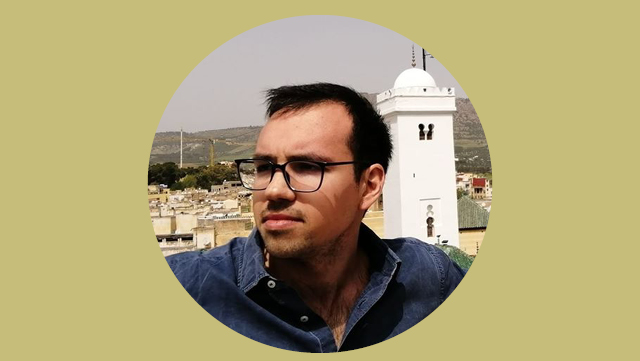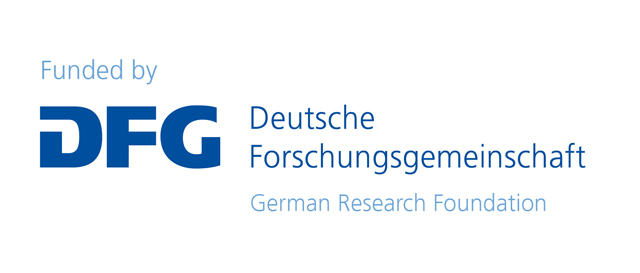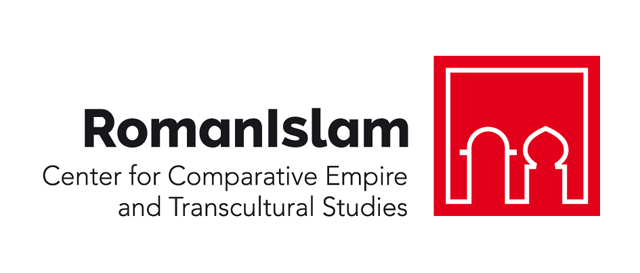Dr. Javier Albarrán Iruela
April 2020 - March 2021

Research Project: The Memory of Islamication: Ifrīqiya, the Maghrib and al-Andalus in a Comparative Perspective
The main aim of my research is to study how was the memory of the conquest and of the process of Islamication created and how was modified over time. In this sense, Islamication is understood more from the perspective of space – of the memory of the place – than of demography. That is, how the sources depicted and remembered how Ifrīqiya, the Maghreb and al-Andalus became an Islamic space. Through the study of different narrative sources such as futūḥ works, on the first hand I will identify the symbols or images that are used to depict the process of Islamication. That is to say, to identify and collect the discursive tools that the sources use to “Islamicate” the narrative of the conquest, to show that a particular space in now Islamic, in a broad sense, and to create an Islamic memory of it. In this sense, in a second stage of my research, I will study how and why some of these images, of these discursive tools, or a combination of them, became places of memory, symbols of collective interest that become part of the memory and that left their mark on the collective memory of the community of believers.
I will try to answer some questions such as:
- How and why were these traditions created in the decades following the conquests?
- What was the purpose behind them? Why were they “invented”?
- Why they became places of memory and how they were remembered and modified?
- Do they have new meanings and new purposes in the new and changing contexts?
- To what extent was the creation of these traditions and memories of the Islamication a reaction to the pre-Islamic reality? And, if this is the case, how was it related to the formation of the different post-conquest and post-Islamication identities in each region and to the establishment of a new Islamic government and administration?
- What was the social function of these traditions and their memory?
Profile
Dr. Javier Albarrán Iruela is a medievalist dedicated to the study of the Islamic West, especially issues related to religious violence, ideology of war, the history of jihad, the figure and veneration of prophet Muhammad, the memory of the early Islam, and encounters between religions. His PhD dissertation was conducted within the framework of the project “Religious Violence in Medieval Iberia [Violencia religiosa en la Edad Media peninsular: guerra, discurso apologético y relato historiográfico (ss. X-XV)]”, based in the Universidad Autónoma de Madrid, and of the ERC project CORPI (Conversions, overlapping religiosities, polemics and interaction in early Modern Iberia and beyond), based in the CSIC (Spanish National Research Council), and was entitled “The Discourses of Holy War and the Memory of the First Battles of Islam. Al-Andalus, 10th-13th centuries”. It aims to study the articulation of the discourse of holy war and its relation to the remembrance of the maghāzī and the futūḥ in al-Andalus, paying particular attention to how jihād and memory constituted a main power tool. He has undertaken several research stays (University of Jordan; Sidi Mohammad Ben Abdallah University, Fes; University of Religions and Denominations, Qom; University of Göttingen), and published several monographs, book chapters and scientific articles in journals such as al-Masaq: Journal of the Medieval Mediterranean, al-Qantara or the Journal of Medieval Worlds. He is currently the coordinator of the “History and Religion Seminar” at the Universidad Autónoma de Madrid, and one of the editors of the online dissemination project Al-Andalus y la Historia).
CV
Relevant Publications
Albarrán Iruela, Javier (2019a) ,“Holy War in Ibn Khaldūn. A Transcultural Concept?”, Journal of Medieval Worlds, 1/1, 55-78.
Albarrán Iruela, Javier (2019b) ,“La voz de enfrente: cartas, interacción entre comunidades y discursos de legitimación. El caso de Alfonso VI, al-Mu‘tamid y Yūsuf b. Tāšufīn”, eHumanista, Journal of Iberian Studies, 41, 40-61.
Albarrán Iruela, Javier (2018a), “The Jihād of the Caliphs and the First Battles of Islam. Memory, Legitimization and Holy War: from Cordoba to Tinmal”, Al-'Usur al-Wusta: The Journal of Middle East Medievalists, 26, 113-150.
Albarrán Iruela, Javier (2018b), “Al-Andalus” in García Fitz, F. and Gouveia, J. (eds.), War in the Iberian Peninsula, 700-1600, New York: Routledge, 1-35.
Albarrán Iruela, Javier (2017a), El Sueño de al-Quds: los musulmanes frente a la conquista cruzada de Jerusalén, La Ergástula, Serie Sine Qua Non: Monografías de Historia Medieval, Madrid.
Albarrán Iruela, Javier (2017b), “Memoria y ŷihād en el ocaso del poder almohade: el Kitāb al-Rawḍāt al-bahiya al-wasīma fī gazawāt al-nabawiyya al-karīma”, Al-Qantara. Revista de Estudios Árabes, XXXVIII 2, julio-diciembre 2017, 387-406.
Albarrán Iruela, Javier (2015a), “'He was a Muslim Knight Who Fought for Religion, Not for the World' War and Religiosity in Islam: A Comparative Study Between the Islamic East and West (12th Century)”, Al-Masaq: Islam and the Medieval Mediterranean, 27/3, 191-206.
Albarrán Iruela, Javier (2015b), Veneración y polémica. Muḥammad en la obra del Qādī ‘Iyāḍ, Madrid: La Ergástula.
Albarrán Iruela, Javier (2013), La cruz en la media luna. Los cristianos en al-Andalus: realidades y percepciones (siglos VIII-XIII), Murcia: Sociedad Española de Estudios Medievales-CSIC-Editum.


